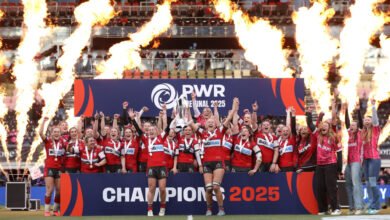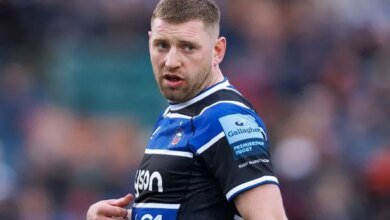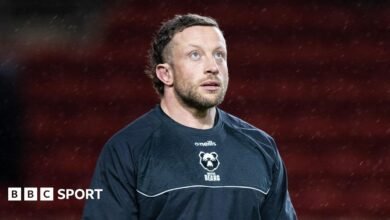The Lions 23 and its skipper if Andy Farrell was South African
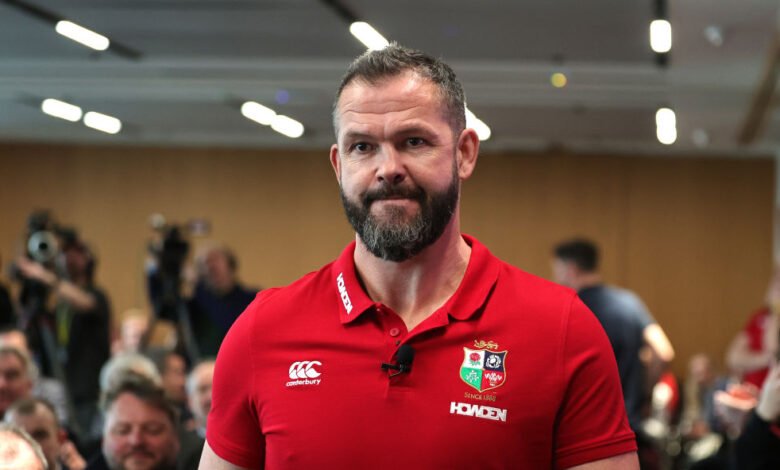
We’re all slaves to our own experiences. The invisible forces that steer us through life shape our understanding of this complex sport.
Which leads us to the question everyone’s been asking: how would a South African select a British & Irish Lions squad? What’s that? You’ve not asked this once? Fair enough. But since everyone and their mum has had a go at selecting a Lions cohort for the trip Down Under, we thought we’d put a little spin on it, flavour it with biltong shavings and serve it up with a double brandy and coke.
This is not a prediction on what Andy Farrell will do, nor a claim on what he should do. It’s simply playing with a hypothetical—if the Lions coach and his support staff were based in Durban and not Dublin.
Disregard conventions
Many of the decisions taken by Rassie Erasmus over the years have added up to the Springboks being double world champions. One, though, stands out.
By selecting overseas-based players since 2018 regardless of their Test experience—something his predecessors refused to do—Erasmus has expanded his player pool and opened the door for world-class talent to thrive at the elite level. Faf de Klerk, Willie le Roux and Duane Vermeulen returned to the fold in his first year in charge to form part of the Boks’ spine across two World Cup campaigns.
Farrell could do likewise and pick a trio of Englishmen who have been frozen out of the England camp because of an archaic selection rule. His son, Owen, might not be tearing up trees in Paris, but he is a proven winner and a player who can cover multiple positions. And, unlike his rivals for the No. 10 jersey, he is a force in defence.
Elsewhere, Jack Willis has arguably been the best player in Europe since he joined Toulouse and is shining in a galaxy of superstars in France. Courtney Lawes is another option and, even at 36, is one of the most dynamic forwards in the game.
Farrell has kept the possibility alive for all three. “We’re open-minded about all of that,” he recently said of the prospects of picking from left field. If he thought like a South African, he’d have no doubts at all.
Select a captain that signals change
Across 137 years of British & Irish Lions rugby, there has never been a Black captain. The histories and demographics of South Africa and the British Isles are obviously very different, but social change is impactful regardless of the context and, all things being equal, leaning towards progress has merit on its own.

Maro Itoje’s selection as captain would make sense even without this context. He has been one of the best locks in the game for nearly a decade, leads by example on the pitch, captains his country and is almost guaranteed to start every Test in Australia.
When Erasmus selected Siya Kolisi as the Springboks’ first Black captain, he was criticised in some quarters for turning the position into a political role. Seven years later, Kolisi has transcended the sport and is one of rugby’s most instantly recognisable figures. Itoje wouldn’t necessarily reach those heights if picked to lead, but it would be a significant milestone.
Place faith in the little bloke in a scrum-cap
Few positions in the Lions starting XV are universally agreed upon. Left wing is one of them, where James Lowe’s name is inked on the team sheet. The other winger’s jersey could go to a range of players—Duhan van der Merwe, Tommy Freeman, Ollie Sleightholme, Mack Hansen; there’s no shortage of options.
But if we can glean another lesson from the Boks’ success, it’s this: if you want to convert opportunities to points, you need a diminutive hot-stepper in a scrum-cap patrolling the wing like a hungry leopard. Erasmus has Cheslin Kolbe and Kurt-Lee Arendse and has shown good sense in picking both. Farrell has one option and would be a fool not to place his faith in Darcy Graham.
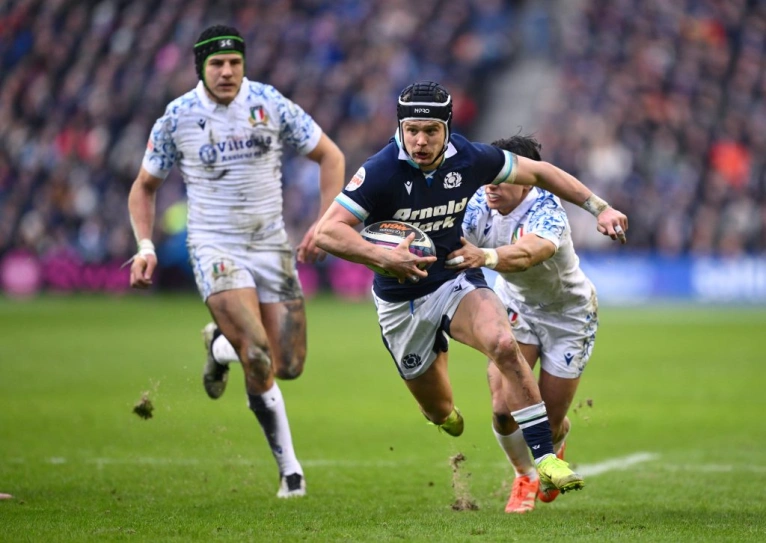
Just one try behind Van der Merwe in the race to become Scotland’s top try-scorer of all time, the little lad can do things his larger teammate cannot. Graham has a better passing game and can wriggle out of tighter spaces. Though he might lack the torque of other men when charging through contact, he is among the most elusive runners in Europe.
If Kinghorn is selected at fullback (as he should be), and the rest of the backline possesses punch, Graham could provide the X-factor necessary to unlock a tight Test.
Trust in size, go for combinations, unleash the 7–1
When in doubt, go with heft. It’s a mantra that’s been espoused around Africa’s southern tip since the British brought the oval ball in the 19th century, and it’s worked pretty well ever since.
Of course, there’s room for smaller players. The aforementioned wingers have played their bit, and the impact of Kwagga Smith has provided great balance to the squad. But for the most part, it’s the big units who have powered the Springboks juggernaut.
If Farrell was like-minded, he’d be banking on a 7–1 bench split and look to steamroll the Wallabies. He’s certainly got the firepower to do it. And since we’re playing with hypotheticals, let’s assume everyone is fit, which means George Martin gets the nod in the match-day 23. Owen Farrell, Lawes, Kinghorn and others who tower over their rivals also make the cut. This also means Sione Tuipulotu needs to shift to 13 to make room for the meatiest midfielder in Europe.
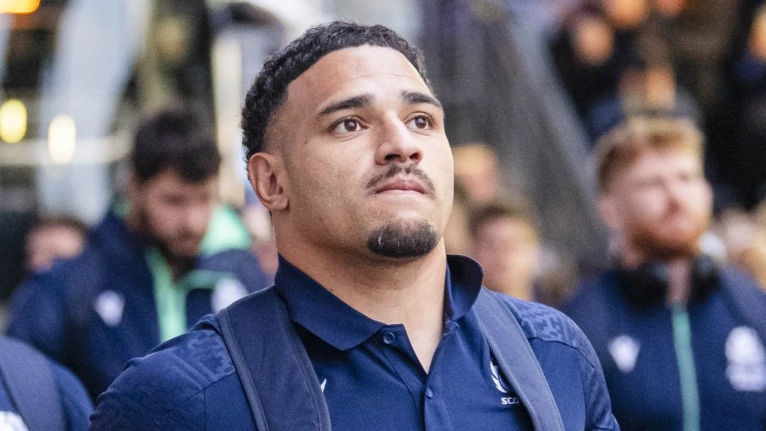
And while Farrell is unloading a cluster of monsters in one go, he ought to stick with an all-Irish front row at the start, to be replaced by an all-English front row around the hour mark. Now where have we seen that work so well before?
So, what would the Lions match-day 23 look like if Farrell was South African? Maybe a little something like this:
Dan Gallan’s British & Irish Lions 23
15. Blair Kinghorn (Scotland)
14. Darcy Graham (Scotland)
13. Sione Tuipulotu (Scotland)
12. Bundee Aki (Ireland)
11. James Lowe (Ireland)
10. Owen Farrell (England)
9. Jamison Gibson-Park (Ireland)
1. Andrew Porter (Ireland)
2. Dan Sheehan (Ireland)
3. Tadhg Furlong (Ireland)
4. Maro Itoje (captain) (England)
5. Tadhg Beirne (Ireland)
6. Josh van der Flier (Ireland)
7. Jack Willis (England)
8. Ben Earl (England)
Replacements:
16. Jamie George (England)
17. Will Stuart (England)
18. Ellis Genge (England)
19. James Ryan (Ireland)
20. George Martin (England)
21. Courtney Lawes (England)
22. Tom Curry (England)
23. Alex Mitchell (England)



